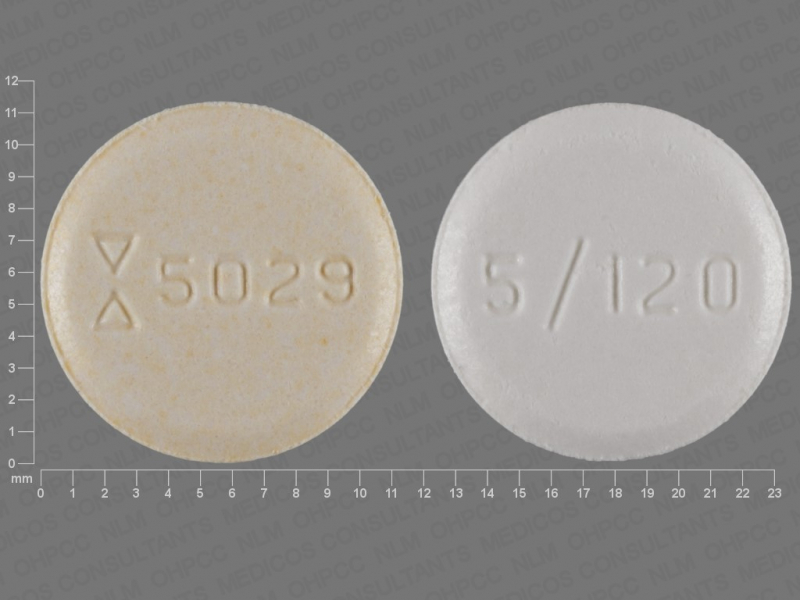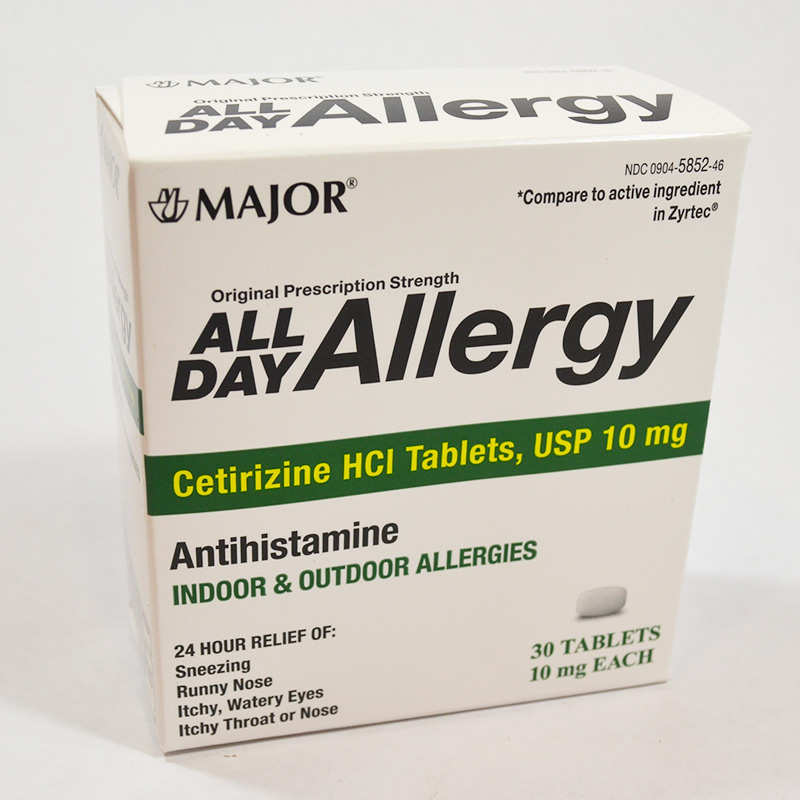Top 9 Things to Know About Zyrtec
Infants as young as six months old can be treated for both indoor and outdoor allergies with Zyrtec, the only drug that has received FDA approval. As a ... read more...second-generation antihistamine, Zyrtec is less likely to sedate you because it doesn't easily get into your brain. How Zyrtec works and how much to give to adults and kids are covered in this article. In addition, it discusses why using Zyrtec should be avoided for safety reasons, as well as common and serious adverse effects.
-
Zyrtec is an antihistamine that lessens the impact of the body's natural chemical histamine. Runny nose, watery eyes, and sneezing are histamine-related symptoms.
Zyrtec is intended to treat cold and allergy symptoms in both adults and children, including sneezing, itching, watery eyes, and runny nose. Zyrtec is also used to treat chronic urticaria-related itching and edema.

Women Get It Free https://www.youtube.com/watch?v=W2mVHvvAAcY -
Inform your doctor about all of your health issues, including any allergies or illnesses, any medications you take, and if you are pregnant or nursing before using Zyrtec.
Your thoughts or reactions might be affected by Zyrtec. If you drive or do anything else that calls for alertness, use caution. Alcohol use might exacerbate some cetirizine adverse effects.
If you routinely use any other medications that make you sleepy, let your doctor know (such as other cold or allergy medicine, narcotic pain medicine, sleeping pills, muscle relaxers, and medicine for seizures, depression, or anxiety). They may increase the drowsiness brought on by Zyrtec. If your symptoms do not get better, if they worsen, or if you also have a fever, call your doctor.

NetDocto 
thehealthy.com -
If you are allergic to cetirizine or levocetirizine, you shouldn't take Zyrtec.
If you have any medical issues, find out from a doctor or pharmacist if taking cetirizine is safe for you.
If you are expecting or nursing a baby, see a doctor before using this medication.
https://www.youtube.com/watch?v=tLfEQvgUsLY https://www.youtube.com/watch?v=MEu5dpod2Dw -
Zyrtec is taken orally. Use Zyrtec precisely as instructed on the label or as your doctor has advised. Adults over the age of 18 might require a lesser dosage than usual. Pay attention to your doctor's advice. This medication can be used with or without meals.
The Zyrtec orally disintegrating pill should not be consumed whole. Without chewing, let the pill dissolve in your mouth. Repeatedly inhale while the pill dissolves. You can sip on anything to aid in the dissolution of the pill if you'd like.
Carefully measure the liquid Zyrtec syrup. Use a pharmaceutical dose-measuring equipment or the dosage syringe that is given (not a kitchen spoon).
If your symptoms do not get better, if they worsen, or if you also have a fever, call your doctor. Keep your items at room temperature away from heat and moisture. Avoid letting liquid medications freeze.

BBC| 
boxed.com -
Extreme sleepiness, visual issues, agitation, feeling restless and then sleepy or weary, fast heartbeats, stomach discomfort, nausea, vomiting, difficulty walking, or difficulty eating or speaking are just a few of the overdose symptoms that may occur.

Everyday Health https://www.youtube.com/watch?v=ehjWazz39zc -
If you experience hives, difficulty breathing, or swelling of your face, lips, tongue, or neck, get immediate medical attention.
If you develop any of the following symptoms, stop taking this medication and contact your doctor immediately:
- fast, pounding, or uneven heartbeat
- weakness, tremors (uncontrolled shaking), or sleep problems (insomnia)
- restless feeling, hyperactivity
- confusion
- problems with vision
- little or no urination
Some of the most common Zyrtec side effects include:
- drowsiness, tiredness
- dizziness, feeling light-headed
- feeling hot, sweating
- numbness, tingling, burning pain
- decreased sense of taste
- headache
- upset stomach, nausea, constipation
- dry mouth, sore throat
This is not an exhaustive list of possible adverse effects; more may arise. For medical advice on side effects, contact your doctor.

healthjade.com 
mdbonedocs.com - fast, pounding, or uneven heartbeat
-
Taking Zyrtec with other sleepy medications might exacerbate this effect. Before using an opioid, sleeping pill, muscle relaxer, or drug for anxiety or seizures, see your doctor.
Other pharmaceuticals, including prescription and over-the-counter medications, vitamins, and herbal supplements, may interact with cetirizine. Inform your doctor about all of your existing medications as well as any new or discontinued medications.

vitalmamas.com 
investorplace.com

































